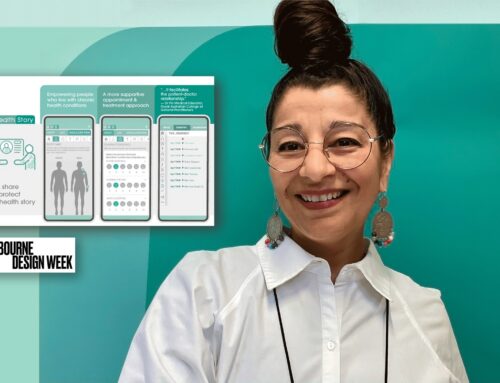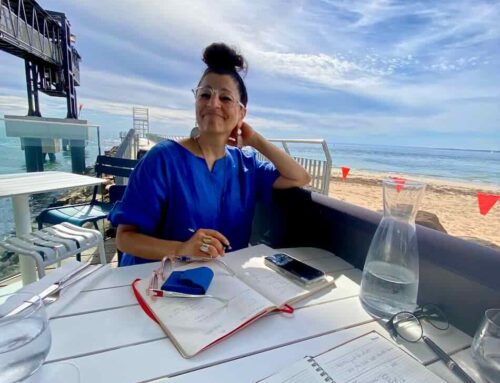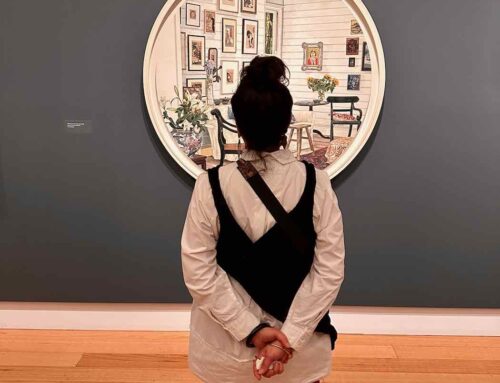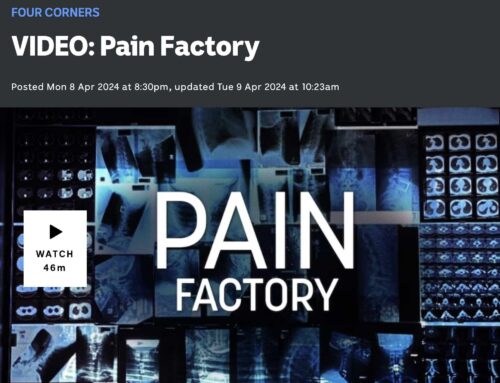I’m an event in the spotlight. GP’s, I hope to see you there!
(Article from RACGP June newsletter)
Events in the spotlight
GPADD18 Conference: Saturday and Sunday 4–5 August 2018
The RACGP Victoria Drug and Alcohol Committee invite you to attend the 2018 conference, GPADD18 – Dealing with Addiction. This conference will address some of the most common addictions and associated conditions that are presented to GPs in their daily practice, including chronic pain, motivational interviewing, hepatitis C and pharmacotherapy.
In 2007, Soula Mantalvanos, Graphic Designer (pictured above), was working on a design brief for a client when the fit-ball she was sitting on exploded. She dropped to a concrete floor, causing her ongoing chronic pain.
Soula realised that the key to living with, and overcoming, chronic pain is accepting it and taking responsibility for its management. She also found that having to retell and update her story to a range of professionals was time-consuming, tedious and often traumatic. Soula will draw on her communication skills, as well as her 11-year experience as a patient, to talk about the public perception of chronic pain and to present her pain management resources at the Saturday program of the GPADD18 Conference.











I think all professionals need to have their ‘instinct’ and ‘common sense’ on. I have popped a sentence in to address the fact many people manage their meds well, but I am predominately there to present resources for pain management. I’m not qualified to talk about meds other than to present my own experience but I’m not even focusing on my chronic pain much – I want to hand over these resources! Having said that, conferences always present a great opportunity for conversation after the formalities and I intend to definitely give my opinion on this wherever I get my chance. I’d like to think the media is driving this stupid message and that GP’s do have the sense to think this through but as you point out, if the organisations representing chronic pain are heavily weighing their messages over the other side, it’s going to be difficult. And, (once again) the patient will have to explain themselves if/when they need medication. It’s so hard not get upset and think ‘what do we know?’ but WE DO KNOW!!!!
Well done Soula. I hope the GPs have their “listening ears” on and take on board your message about communication regarding chronic pain. I have concerns about the perception that chronic pain patients are addicted to opioids. We should not be lumped in with drug seekers and addicts when GPs and other so called experts are discussing addiction. As a chronic pain patient on a low dose, slow relief opioid I take great offence at the insinuation that I am an addict. Plenty of chronic pain pts carry on relatively normal lives on steady opioid doses and like myself cannot manage without the relief provided by these drugs. Does that make me an addict? I think not. There are many other drugs that have discontinuation symptoms that are much worse than opioids. For example two other drugs that I take, Lyrica and cymbalta, are very difficult drugs to discontinue, yet I am not classed as addicted to them. I understand that people are dying from opioid overdoses but the statistics never mention the other drugs that are taken in conjunction. I am positive some chronic pain patients are suiciding (especially if work cover is involved) simply because of the difficulty and depression associated with chronic pain. I hope the GP’s at the conference are open minded and prepared to discuss the plight of chronic pain patients who rely on opioids for pain relief. It concerns me also that organisations like “Pain Australia” are on the anti opioid band wagon as well and quoting dubious studies that refer to the escalating uptake of opioid drug prescriptions. Sorry about my long rant but sometimes I feel chronic pain pts are so consumed with trying to live they are generally unheard and invisible to policy makers and Drs.